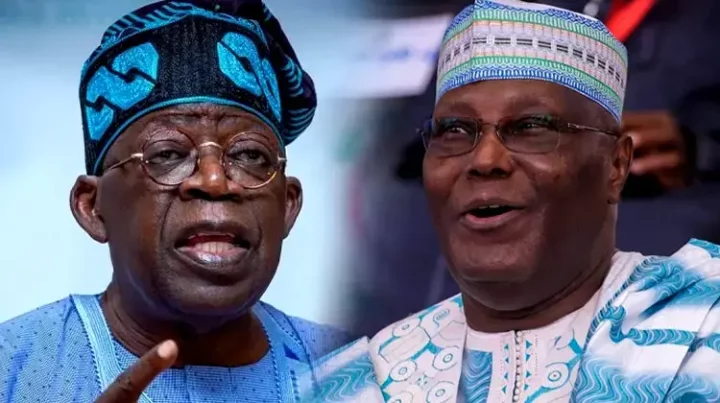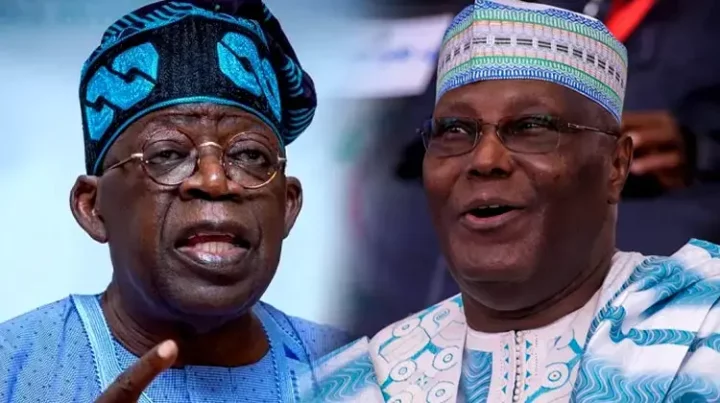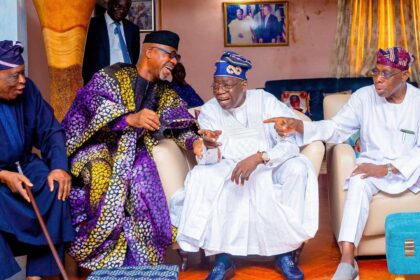
President Bola Tinubu’s alleged criminal record and dual citizenship, according to the Attorney for the presidential candidate of the People’s Democratic Party (PDP), Alhaji Atiku Abubakar, should be grounds for disqualification by the Independent National Electoral Commission (INEC).
In response to Tinubu, whose attorneys recently testified before the Presidential Election Petitions Court in Abuja that Atiku presented a passport from Guinea that was allegedly Tinubu’s but had expired, Chris Uche SAN, the lead attorney for Atiku, maintained that Section 137 of the 1999 Constitution prohibits anyone running for president of Nigeria from becoming a citizen of another country.
New Telegraph recalls that Tinubu’s team led by Chief Wole Olanipekun SAN did not concede or deny that the president has dual citizenship in their written address.
Olanipekun countered, however, that despite having dual citizenship, a Nigerian is still allowed to run for president under local laws.
Olanipekun had told the court that Atiku planned to embarrass his client with an expired document.
This comes after Chris Uche SAN on June 25 presented Atiku’s 27th witness, Barrister Mike Enahoro Ebah (PW27), to prove that Tinubu was a dual citizen of Nigeria and Guinea prior to the polls, among other allegations.
Olanipekun wrote: “It is all guesswork, aimed at embarrassing the respondent (Tinubu).
“Assuming without conceding that the respondent was ever issued that passport, it is our further submission that facts relating to citizenship of a foreign country are rooted in the laws of that country, which have to be proved in Nigeria.
“It is submitted further, that even if the respondent has a dual citizenship, which is not conceded, the Constitution does not preclude him from contesting the office of President of Nigeria,” Olanipekun stated.
Replying to Olanipekun on that, Uche insisted that with respect to the acquisition of citizenship of Guinea, it remains the case of the petitioners that President Tinubu is not constitutionally permitted to acquire the citizenship of Guinea.
Uche further urged the PEPC to disqualify Tinubu on the grounds of ” provision of section 137(1) (a) of the Constitution of the Federal Republic of Nigeria 1999 (as amended) is very specific a President of the Country, as a symbol and embodiment of the Country, cannot be allowed to declare allegiance to another Country which is the implication of acquiring such a country’s citizenship.”
Regarding INEC’s assertion that technical difficulties prevented it from transmitting real-time presidential election results, Uche drew the court’s attention to the testimony of Lawrence Bayode, an electoral umpire witness, who testified in open court that INEC failed to notify Amazon Web Services AWS of the problems.
Even though he disputes that there was a technical error during the election, Uche argued that INEC’s admission that it failed to notify the makers of the technological device or Amazon Web Service of the problem is irrefutable evidence that the purported “technical glitch” was a hoax, at the very least, self-inflicted.
“For a project that the Nation committed the sum of over N355 billion, it is unreasonable to expect that the Commission would refuse to report or complain to the suppliers of the devices or providers of the services or hold anyone accountable,” Uche added, faulting INEC Chairman, Yakubu Mahmood for going ahead to announce a winner of the polls when BVAS and IREV were central to the 2023 presidential election in light of the Electoral Act 2022.
He urged the court to cancel Tinubu’s election for substantial non-compliance to the Electoral Act.







